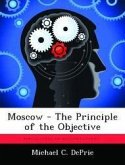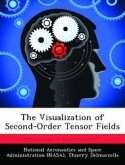Napoleon once said, "The moral is to the material as three is to one." What did he have in mind when he stated this famous aphorism? Material factors are easy to calculate. This is the science of warfare. Organization, equipment, doctrine, training, and other material factors are quantifiable. But the conduct of war is not just science. The study of warfare necessarily entails analysis of the human will if the conduct of war is to be understood at all. Thus, the central research question is: according to the classical military theorists, what is the best way to target an enemy's will to fight? It requires analysis of the theorists views of the will to fight by determining their levels of analysis, what they thought an enemy's centers of gravity were, how to attack the centers of gravity, and what defeat mechanisms the theorists proposed. There are several principles shared by all of the theorists at the strategic level and operational levels of war. These include using deception, surprise, avoiding strengths and attacking weaknesses, concentration of effort, and avoiding protracted war using conventional means. All of their principles are based on the psychological responses of the enemy.
Hinweis: Dieser Artikel kann nur an eine deutsche Lieferadresse ausgeliefert werden.
Hinweis: Dieser Artikel kann nur an eine deutsche Lieferadresse ausgeliefert werden.








